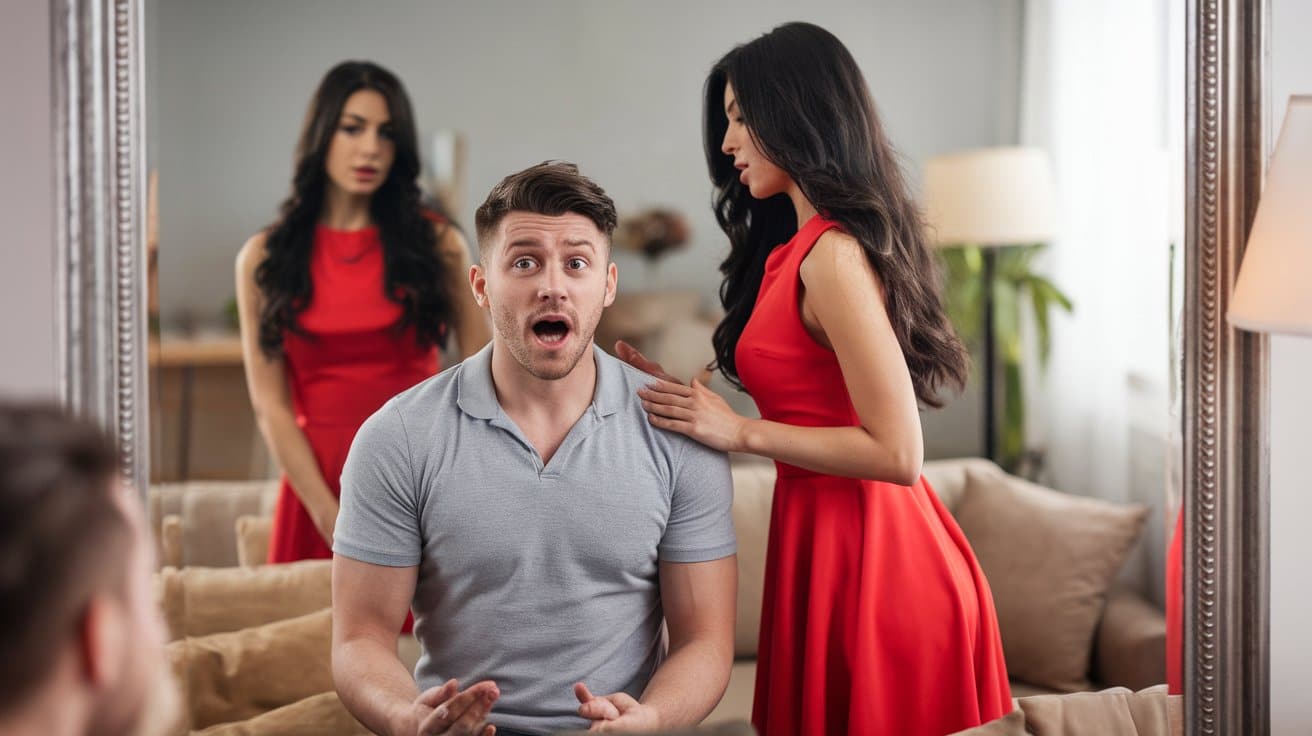
Have you ever felt your heart race at seeing a pretty face?
For some people, it’s not just a flutter of excitement – it’s pure fear.
Welcome to the world of venustraphobia, the fear of beautiful women.
It might sound strange at first, but for those who deal with it, it’s a real challenge that can turn everyday life into a maze of anxiety.
In this post, we will take a closer look at this unusual fear.
We’ll explore what causes it, how it affects people, and what can be done to overcome it.
Whether you’re dealing with this fear yourself, know someone who is, or are just curious about how our minds work, this blog will open your eyes.
So, let’s dive in and unravel the mystery of venustraphobia together!
Understanding Venustraphobia: Fear of Beautiful Women

Venustraphobia is a complex fear that goes beyond simple nervousness around attractive people.
It’s a specific phobia that can cause intense anxiety and distress when encountering or even thinking about beautiful women.
This fear isn’t just about physical appearance – it often involves deeper psychological issues related to self-esteem, social anxiety, and past experiences.
People with venustraphobia might experience a range of reactions, from mild discomfort to full-blown panic attacks.
It’s important to note that this fear isn’t about hating or disliking beautiful women.
Instead, it’s an irrational fear response that the person often recognizes as excessive but cannot control.
This phobia can develop at any age but often starts in adolescence or early adulthood.
It can affect people of any gender, though it’s more commonly reported in men.
1. What Sets Off This Fear?
Venustraphobia, the fear of beautiful women, can be set off by various things.
Some people might feel uneasy when they see a woman they find attractive.
Others might get nervous just thinking about talking to a pretty woman.
This fear often grows over time, sometimes starting from a bad experience or feeling out of place in social situations.
2. The Mind Behind the Fear
This fear isn’t just about looks. It’s tied to how we see ourselves and others. People with venustraphobia might think they’re not good enough or worry too much about what others think. They might feel like they can’t measure up to beautiful women or fear being judged by them.
3. Signs to Look Out For
People with this fear might feel very anxious around beautiful women.
They might avoid places where they might see attractive women.
Some common signs include sweating, a racing heart, and feeling panicky.
In severe cases, someone might even have trouble breathing or feel dizzy.
Why Venustraphobia Happens?
The development of venustraphobia isn’t usually due to a single cause but rather a combination of factors.
These can include personal experiences, learned behaviors, and even biological predispositions.
Understanding these causes is crucial for those experiencing the fear and those seeking help.
One key aspect to consider is the role of societal beauty standards.
In a world where physical attractiveness is often overvalued, some individuals may develop an unhealthy relationship with the concept of beauty.
This can lead to feelings of inadequacy or fear of judgment, which may evolve into venustraphobia.
It’s also worth noting that this phobia can sometimes be a symptom of other underlying issues, such as social anxiety disorder or body dysmorphia.
In some cases, it might be linked to past traumatic experiences involving attractive women, such as bullying or rejection.
1. Past Bad Experiences
Sometimes, this fear comes from something that happened in the past.
Maybe someone was turned down by a beautiful woman or felt embarrassed around one.
These experiences can leave a lasting mark.
2. Worry and Stress
People who tend to worry a lot or feel stressed easily might be more likely to develop this fear.
Their minds are always on high alert, making them more sensitive to potential threats—even when there isn’t really a threat.
3. Society’s Influence
The way our society talks about beauty can play a big role.
If we’re always told that looks are super important, it can make some people feel very nervous around those they see as beautiful.
How It Affects Daily Life: The Far-Reaching Impact of Venustraphobia

Venustraphobia can have a significant impact on various aspects of a person’s life.
It’s not just about feeling uncomfortable in certain situations – this fear can profoundly shape a person’s choices, relationships, and overall quality of life.
In severe cases, venustraphobia can lead to social isolation.
The person might avoid social gatherings, public places, or even job opportunities where they might encounter beautiful women.
This can limit their personal and professional growth, leading to missed opportunities and unfulfilled potential. Relationships can also suffer.
People with venustraphobia might have difficulty forming romantic relationships or even friendships with women they perceive as beautiful.
This can lead to loneliness and reinforce negative beliefs about themselves and others.
Considering the emotional toll of living with this fear is also important.
Constant anxiety and stress can lead to other mental health issues, such as depression or low self-esteem.
The struggle to hide or manage this fear can be exhausting, affecting overall well-being and life satisfaction.
1. Physical Signs
When someone with this fear is around a beautiful woman, they might-
- Start sweating a lot
- Feel their heart racing
- Get shaky or dizzy
- Have trouble catching their breath
- Feel like they need to run away
2. Everyday Challenges
This fear can make life tough. It might be hard to-
- Make new friends or date
- Do well at work if there are attractive female coworkers
- Go to social events or public places
- Feel good about oneself
Comprehensive Strategies for Overcoming Venustraphobia
Overcoming venustraphobia is a journey that requires patience, commitment, and often professional help.
There’s no one-size-fits-all solution, but many effective strategies and treatments are available.
One of the most important steps is acknowledging the problem and seeking help.
This can be challenging, as many people feel ashamed or embarrassed about their fear.
However, recognizing that venustraphobia is a real condition that can be treated is a crucial first step towards recovery.
Treatment often involves a combination of therapeutic approaches.
Cognitive-behavioral therapy (CBT) is commonly used to help individuals identify and change negative thought patterns and behaviors associated with their fear.
Exposure therapy can also be very effective when the person gradually faces their fear in a controlled and safe environment.
In addition to professional treatment, many self-help strategies can support recovery.
These might include mindfulness practices, self-esteem-building exercises, and learning about healthy relationships and communication skills.
It’s also important to address any underlying issues that might be contributing to the phobia.
This could involve working on general social skills, building self-confidence, or addressing other mental health concerns.
Recovery is possible, but it’s often a gradual process. With the right support and tools, people with venustraphobia can learn to manage their fear and lead fulfilling lives.
1. Learning to Cope
There are things people can do to feel better-
- Practice deep breathing when feeling anxious
- Try to challenge negative thoughts
- Slowly face fears in small steps
- Join a support group to talk with others who understand
2. Getting Help
Sometimes, it helps to work with a professional-
- Talking to a therapist can help understand and change thought patterns
- Some therapies help people face their fears bit by bit in a safe way
- Learning relaxation techniques can help manage anxiety
- In some cases, a doctor might suggest medicine to help with anxiety
Remember, it’s okay to ask for help. With time and effort, people can learn to manage this fear and live happier lives.
Final Thoughts
But here’s the good news: there’s hope.
People can learn to manage this fear with the right help and a bit of courage.
It might take time and not always be easy, but it’s possible to build a life where beauty isn’t something to be afraid of.
If you or someone you know is struggling with venustraphobia, remember that you’re not alone.
There are people out there who understand and want to help.
The first step is recognizing the problem; if you’ve read this far, you’ve already taken that step.
What are your thoughts on venustraphobia? Have you learned something new? Maybe you have a story to share? We’d love to hear from you in the comments below.
And if you found this post helpful, why not check out our other articles on understanding and overcoming fears?

